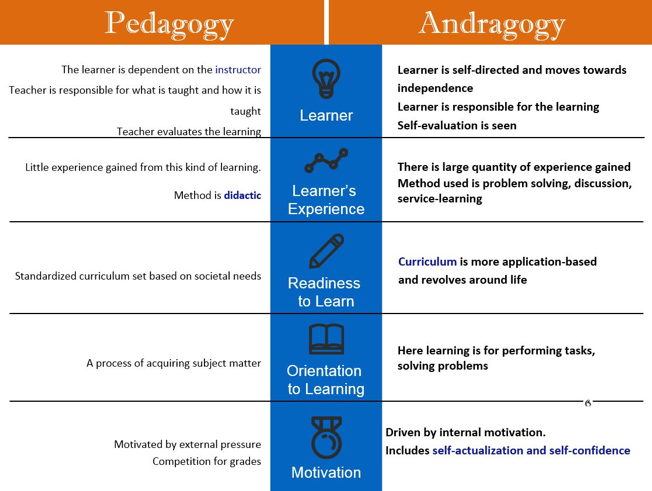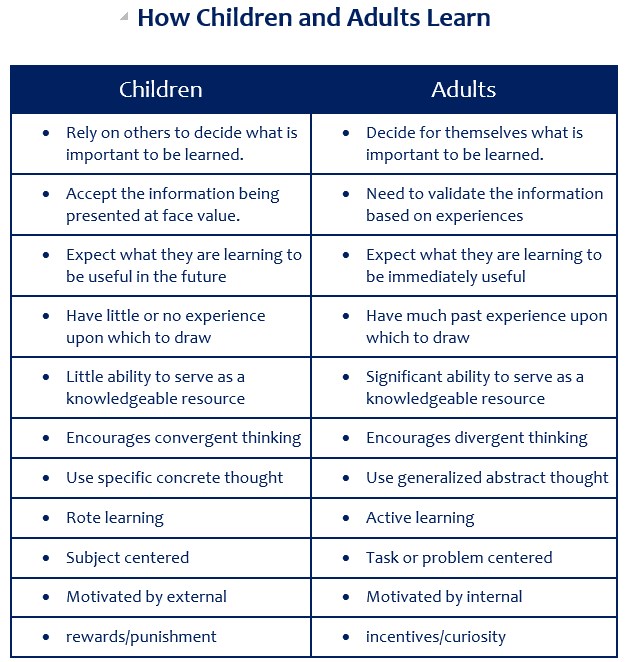It is important to understand that the South African Skills Development Act and National Qualifications Act is structured around a learning theory related to Andragogy. The old system of lecturing and teaching was based on a learning theory called Pedagogy.
The term Pedagogy was derived from the Greek words “paid” (meaning “child”) and “gogus” (meaning “leading”). Thus, it is defined as the art and science of teaching children.
The term Andragogy was coined by re searchers of adult learning in order to contrast their beliefs about learning to the pedagogical model. Malcolm Knowles first introduced the concept in the US in 1968. The concept of andragogy implies self-directedness and an active student role, as well as solution-centred activities. It was derived from the Greek word “aner” (with the stem andr-) meaning “man, not boy".
It is important to examine the differences between the two different methodologies carefully before undertaking facilitation in an adult learning environment.
Click here to view a video that explains facilitating learning in a student-driven environment.
Click here to view a video that explains the six adult learning principles.
Differences Between Children and Adults as Learners
Differences Between Pedagogical and Andragogical Instruction Methodologies in Adult and Occupational Learning

Click on the link/s below to open the resources.
